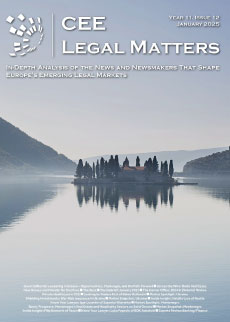Romania’s Competition Council is one of the country’s most active and demanding regulatory authorities, with hundreds of sector inquiries and investigations conducted in two decades of activity and significant fines being levied against offenders each year. The powers of the RCC have increased in recent years, as a result of efforts to encourage and protect whistleblowers, new developments in forensic procedures, and cross-border cooperation and action. In addition, the European Commission’s March 22, 2017 proposal to empower national competition authorities is expected to increase the RCC’s reach and efficiency.
In this context, companies need to take more care than ever to ensure compliance with Romania’s competition legislation. To help companies do so, in 2017 the RCC published a Guide on Compliance with Competition Rules.
To find out what such compliance programs should look like, what the RCC recommends, and how following the RCC’s guidelines can help a company, we reached out to Schoenherr Bucharest Partner Georgiana Badescu, a widely-acknowledged expert in the field, with some questions.
CEELM: First, Georgiana, let’s start by reviewing the RCC’s efforts and success rate. How active is the authority, and how often are its challenges to its fines successful?
G.B.: Competition challenges in Romania are governed by two levels of jurisdiction: the Bucharest Court of Appeals and the High Court of Justice. Most years there are well over 100 cases pending before the competent courts of jurisdiction. Last year there were 185 cases, in fact – up from 118 in 2010.
Statistics show a high success rate in favor of the Romanian authority: its average success rate at the first level of jurisdiction was 90% from 2010-2016, with a drop to 78% in 2017; and an average of 92% at the second level of jurisdiction during the same period, with a drop to 90% in 2017. In 2017, the High Court of Justice upheld sanctioning decisions in full in 55% of the cases; in others, it mostly reduced fines applied through the RCC’s sanctioning decision. Only in rare cases – approximately 10% of the time – did it actually annul the fine.
CEELM: What sorts of problems get companies in trouble most often?
G.B.: Agreements between competitors (so-called cartels) consisting of price fixing, bid rigging/market sharing, limitations of trade, including those set up via exchanges of commercially sensitive information either directly or through trade associations, for example, are the most problematic and are typically investigated and sanctioned by the RCC.
Abuses of dominant position have also been on the authority’s radar for some years now.
Recent statistics show that out of 19 new investigations opened by the RCC in 2017, 11 concern potential cartels and five involved abuses of dominant position.
CEELM: What do the compliance programs you design and help implement generally look like?
G.B.: The first step we usually take before drafting a competition compliance policy is to audit the company’s business practices. This allows us to diagnose where problems may lie, including determining whether a company may be presumed dominant on a specific/narrow market, and to put appropriate safeguards in place via the company’s compliance program.
The second step consists of devising a tailor-made policy that includes practical examples and easy-to-understand cases by employees and typically involves dedicated interactive training sessions and testing.
For some clients, we even organize mock dawn-raids, which basically replicate an inspection from the competition authority. This conveys an increased level of awareness and secures the preparedness of key employees who are likely to be involved in a real raid.
CEELM: What elements of those programs do most companies most commonly overlook without your assistance?
G.B.: I would generally say that an antitrust lawyer’s know-how is an extremely valuable resource in prevention activities, especially in devising or upgrading compliance programs.
We have had requests to review existing compliance programs, especially after the publication of the RCC’s Guide. When handling these instructions, we first define the relevant business areas and have discussions with key employees on daily working streams or information exchanges. After that, we can put forward specific and dedicated recommendations, including templates to be safely used in correspondence. By the nature of our job, we are constantly updated with the latest developments in the field, and therefore we can flag very specific areas of concern that are usually overlooked or seen as less important by companies.
CEELM: Have any of the companies you’ve worked with experienced dawn raids since? What were the results?
G.B.: Yes, we have had a couple of companies that were raided by the RCC, one of them only a few days after a dawn-raid refresher training. I was very impressed by their internal organization, as they followed internal policies by the book: they called us immediately and everyone was alert and aware of the inspectors’ rights during the raid. The process went very smoothly.
CEELM: Does improving a compliance program in alignment with the RCC guidelines help a company in any way beyond protecting it from potential RCC penalties or sanctions?
G.B.: Since the RCC’s sanctioning regime is gradually becoming more severe, I strongly believe companies should focus on investing in adequate compliance programs that could ideally result in bullet-proof behavior. The recent practice of the RCC shows that a company may be held accountable and fined with a percentage of its entire turnover, even for misdeeds of one or two employees.
Beyond this goal, there is also a direct reward for companies: in the event of an investigation, an adequate compliance program can lead to a fine being reduced by up to 10%. It is reasonable to expect that the standards used by the RCC to assess the adequacy of such programs will increase and rely on the RCC’s Guide. Regular trainings are truly important, and mere paperwork ticking all boxes required by the RCC will presumably not be sufficient to secure the highest penalty reduction.
CEELM: How long does a typical mandate work in these cases? How long from initial contact to Schoenherr until the primary work is completed?
G.B.: This very much depends on the scope of work defined with each client.
On average, a typical mandate involving a basic audit of one or two lines of business followed by devising the compliance policy takes between one and a half to three months, as during this time we may exchange several iterations with the client. We have had more extensive mandates of up to six months, but in these cases the audit phase was longer due to the existence of several group companies or lines of business that needed to be assessed.
This Article was originally published in Issue 5.9 of the CEE Legal Matters Magazine. If you would like to receive a hard copy of the magazine, you can subscribe here.



